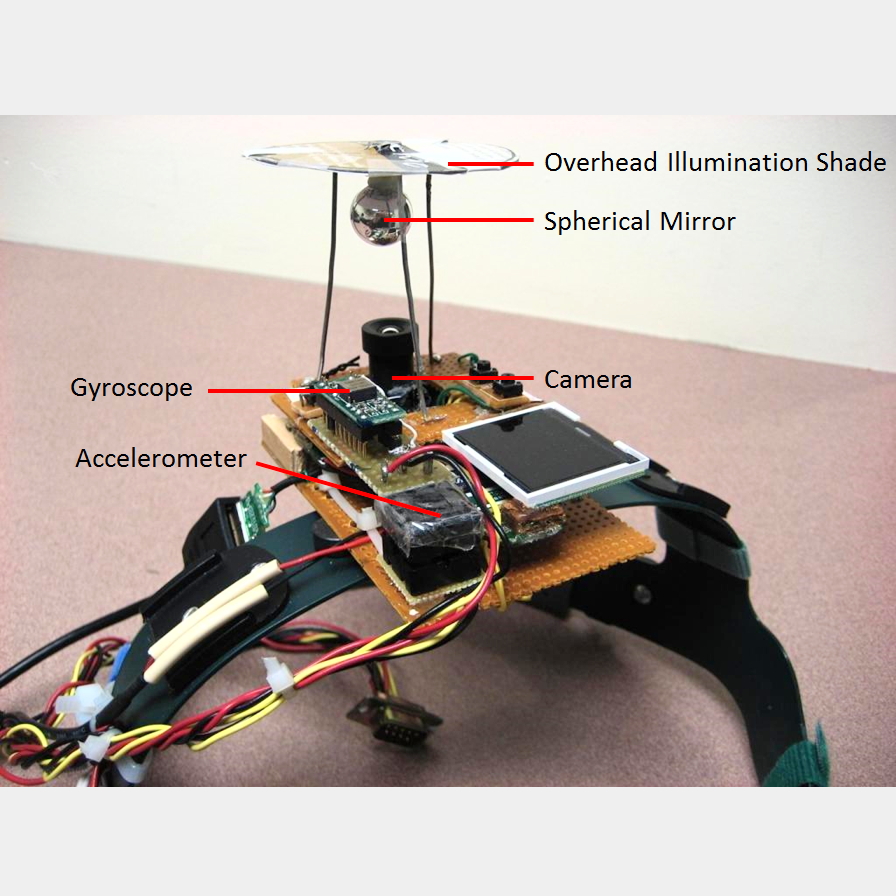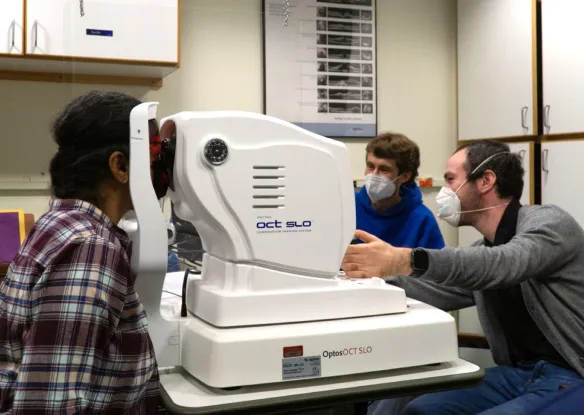

Principal Investigator:
Helen J. SimonThese studies are aimed at analyzing the acoustic properties of the cues used in wayfinding, so that a better idea can be gained of the impact on (and possible remedies for) perception of the various cues when hearing is impaired in different ways.
Novel instrumentation (pictured on this page) was developed by Al Lotze for monitoring the acoustic and optic cues available to a wayfinder. Two sets of sensors are used to monitor acoustic cues. One set of sensors monitors the audio signal reaching the wayfinder’s two ears. An insert microphone is mounted in a small mold that is inserted in the ear canal. The inserted unit also contains a micro-miniature pre-amplifier, the output of which is fed to one of the stereo audio inputs of a wearable computer (a small laptop computer in a wearable harness). When the apparatus is worn, a stereophonic digital recording is obtained of the sounds reaching the wayfinder’s ears. Sensors also monitor head turn and tilt. A novel feature of the apparatus is a 360 degree camera which records video of the surroundings during each experimental session.
Using this apparatus we are making recordings of binaural acoustic cues in different travel settings, enabling us to analyze the spectra of the cues and determine the impact of various types of hearing impairment, so that switchable settings for future hearing aids can be synthesized. (Present-day hearing aids are designed for optimizing speech perception, and their characteristics often suppress environmental cues).





